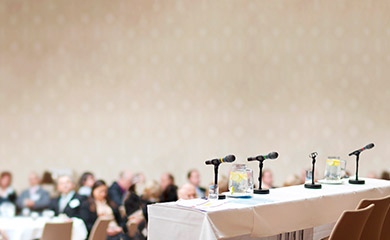
I once worked with a pharmaceutical CEO who had been presenting effectively for decades. He had passion and flair—a great salesman and engaging communicator. But for the scientific regulatory audience he was preparing to speak to, his tone was a bit too commercial. He was skilled presenting to investors and many other audiences, but he needed to adapt his style so he could reach this specific audience in the right way.
I often coach executives to help them prepare for an especially high-stakes presentation or meeting. In some cases, they are already extremely seasoned public speakers, so my role is less about helping them present well and more about framing their message in a way that reaches the unique audience they are speaking to. In these cases, it’s really a task of translation–translating the speaker’s intent into language and style that will best reach the audience at hand.
Invest the time, earn the reward
In a recent Harvard Business Review Article, Juan Ramon Alaix discusses the coaching and training he received over 18 months to help him prepare for the CEO position at Zoetis. Among other things, he eloquently points to the vital role of preparation, “Before I did my first TV interview for instance, I probably spent more than eight hours doing mock interviews.” Part of his preparation involved understanding the various audiences he would be speaking to in his role as CEO, and how to communicate with each of them.
The higher the stakes, the more critical it is to invest time understanding the unique aspects of your audience. Do you know someone who has spoken to this audience, who can give you guidance? Are there members of the audience you can tap for insights? Perhaps it’s time to schedule coffee with a colleague who is connected to your audience. Does the organization have a website or online presence from which to garner context? And, don’t forget the person who is helping you schedule the presentation or meeting; they can often tell you a lot about the audience, or they know someone who can.
Location, location, location
When and where you are speaking may impact the audience greatly. Are you scheduled right after lunch or at the end of an 8 hour day of presentations? Will you be speaking in a room with a view or just steps away from the pool? Who is speaking directly before or after you and what will they be talking about? All of these things can help you take into account the attention span of your audience, energy you will need to emanate and the time you may spend on certain topics.
Always be heard
You may be tapped to give a presentation and it would be easy to just rely on what’s always worked. As the saying goes: don’t fix what isn’t broken. But the next time you’re temped to do that, ask yourself, “How high are the stakes?” If the stakes are high and the communication has to succeed, my advice is to learn everything you can about your audience. Then you can make sure your message is really heard.